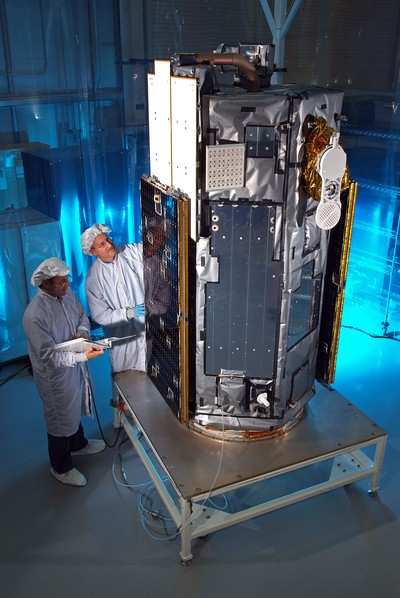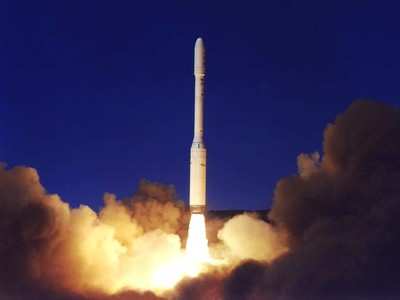Wed, Nov 12, 2008
Satellite To Provide Atmospheric Carbon Dioxide Data
Orbital Sciences Corporation announced this week it has shipped
the Orbiting Carbon Observatory (OCO) satellite to its launch site
at Vandenberg Air Force Base (VAFB), California.

On Saturday, November 8, the OCO satellite departed from the
company’s Dulles, VA facilities in a specialized shipping
container after completing its design, development, manufacturing
and testing process. The spacecraft is due to arrive at VAFB on
Tuesday, November 11 for integration and full system testing with
Orbital's Taurus rocket that will launch the OCO satellite into
low-Earth orbit (LEO) in early 2009.
Orbital built the OCO satellite for the National Aeronautics and
Space Administration (NASA). The OCO project is managed by the Jet
Propulsion Laboratory in Pasadena, California under the direction
of the project's Principal Investigator Dr. David Crisp.
"The cross-country shipment of the OCO satellite from Virginia
to California is the first leg of its journey into space, where it
will collect and provide vital data to scientists studying the
Earth's carbon cycle, a key element in understanding global climate
change," said William Barnhart, Orbital's OCO satellite Program
Manager. "The manufacturing and testing process of the OCO
satellite was completed without any major technical hurdles or
schedule delays. We are on track to carry out the launch of OCO
aboard our Taurus rocket in the early weeks of 2009."
After its launch into orbit, the OCO satellite will collect and
disseminate precise global measurements of carbon dioxide (CO2)
concentrations in the Earth's atmosphere to scientists studying
global climate change. Dr. Crisp and his scientific team will
analyze OCO data to improve our understanding of the natural
processes and human activities that regulate the abundance and
distribution of this important greenhouse gas.

Orbital says this improved understanding will enable more
reliable forecasts of future changes in the concentration of CO2 in
the atmosphere and the effect that these changes may have on the
Earth's climate.
More News
DETRESFA (Distress Phrase) The code word used to designate an emergency phase wherein there is reasonable certainty that an aircraft and its occupants are threatened by grave and i>[...]
"General aviation is at the forefront of developing and introducing innovative technologies that will transform the entire aviation industry..." Source: Kyle Martin, Vice President>[...]
Direct Straight line flight between two navigational aids, fixes, points, or any combination thereof. When used by pilots in describing off-airway routes, points defining direct ro>[...]
Aero Linx: Women in Corporate Aviation Women in Corporate Aviation support individuals seeking career advancement and professional development in the business aviation industry. Me>[...]
“We would like to thank the many volunteers that help throughout the year to pull off the event, as well as the several reviewers, judges, and SURVICE staff that provide team>[...]
 ANN's Daily Aero-Term (04.26.24): DETRESFA (Distress Phrase)
ANN's Daily Aero-Term (04.26.24): DETRESFA (Distress Phrase) Aero-News: Quote of the Day (04.26.24)
Aero-News: Quote of the Day (04.26.24) ANN's Daily Aero-Term (04.27.24): Direct
ANN's Daily Aero-Term (04.27.24): Direct ANN's Daily Aero-Linx (04.27.24)
ANN's Daily Aero-Linx (04.27.24) Aero-News: Quote of the Day (04.27.24)
Aero-News: Quote of the Day (04.27.24)




